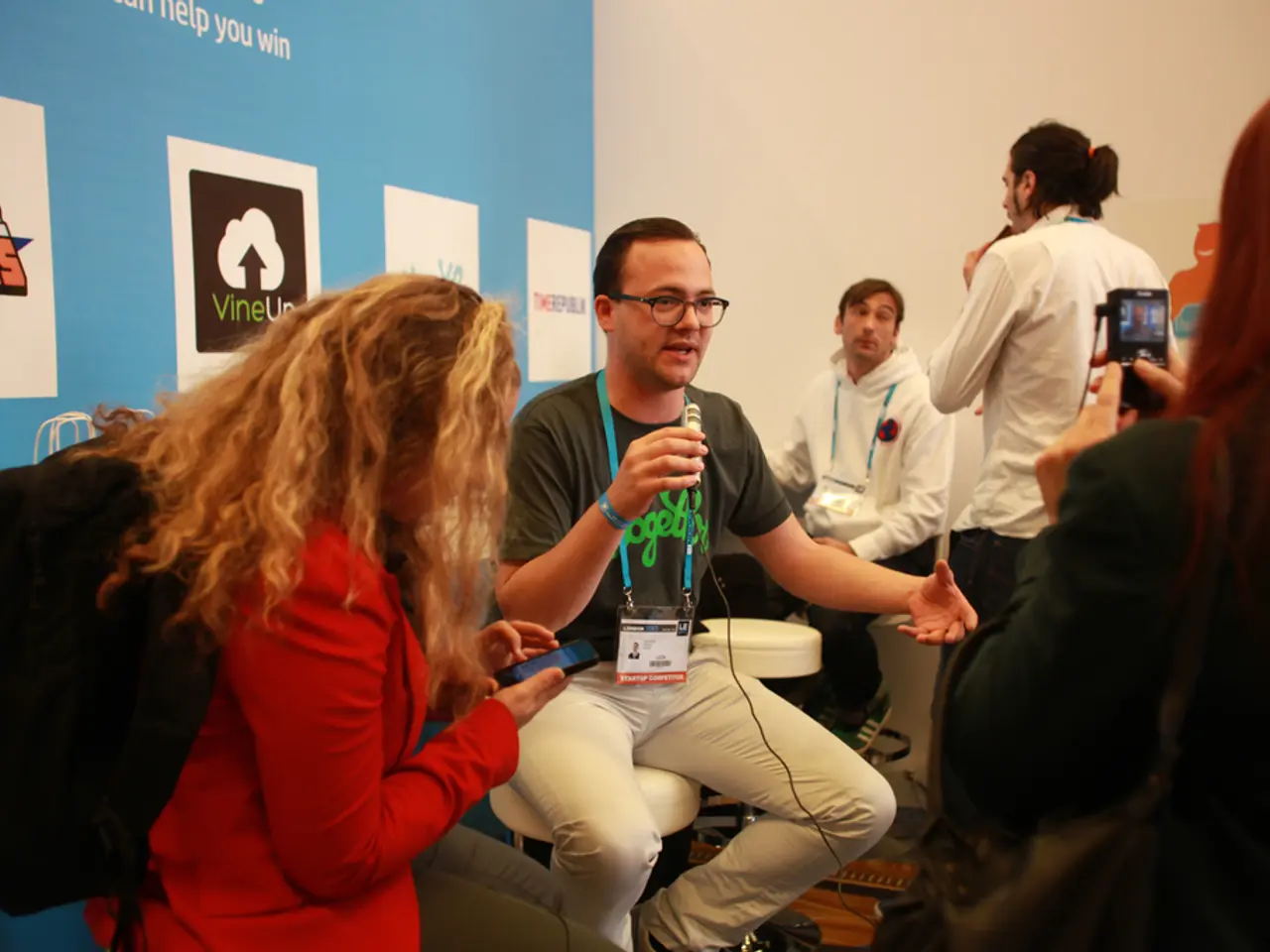Remote Transformation of Hiring Processes: Insights from Startup Leaders on Recruitment Strategies
In the evolving world of work, remote hiring is reshaping how startups find, evaluate, and retain talent. This strategic transformation involves skill validation, lifestyle benefits, cultural integration, and process innovation.
Imad Ali, Founder of Kitt Business Travel, leads by example in this new landscape. He filters remote candidates through skill-based challenges, focusing on action rather than conversation to identify top performers.
Similarly, Forrest Webber, owner of the Tradesmen Agency, has scaled his agency services by employing a hybrid global workforce. This approach diversifies skill sets and reduces overhead, making his business more adaptable and resilient.
However, Katherine King, CEO of Dazychain, warns against using remote hiring solely as a cost-cutting tool. She emphasizes that doing so risks exploitation and undermines the potential benefits of a diverse, global workforce.
Kiara DeWitt, Founder and CEO of Injectco, has reduced hiring timelines and strengthened culture through remote processes. She adopts virtual interviews, practical skill tests, and extended onboarding to ensure a smooth transition for new hires.
Abdul Moeed, Outreach Specialist at Proftvalue.net, prioritizes trust and well-being as cornerstones of remote team success. He believes that these elements are crucial for fostering a productive and harmonious work environment.
Fur, founder of Dollar Bureau, emphasizes the importance of written communication and trial projects for remote success. He believes that these practices help ensure clarity and accountability in a remote setting.
Sabine Ghali, Managing Director at Buttonwood Property Management, replaced traditional interviews with paid, real-world work simulations to gauge candidate performance. This innovative approach allows her to make informed decisions about potential hires.
Josh Qian, COO and Co-Founder at Best Online Cabinets, tailors remote hiring assessments to different roles. He understands that each position requires unique skills and competencies, and tailors the hiring process accordingly.
Lisa Martinez, Founder of TX Cash Home Buyers, creates intentional communication structures in remote teams. She prioritizes quality over quantity, clear reporting systems, and well-defined responsibilities to ensure effective collaboration.
Balancing local and global talent while optimizing hiring processes in a remote work environment requires careful planning and implementation of several best practices. Here are key strategies to consider:
Best Practices for Balancing Local and Global Talent
1. Clear Expectations and Communication
- Set Clear Goals and Expectations: Ensure that all team members, regardless of location, understand their roles, responsibilities, and how their work contributes to broader objectives.
- Establish Communication Norms: Use shared documents to outline preferred communication tools and meeting availability to avoid confusion across different time zones.
2. Global Training and Development Opportunities
- Access to Training: Provide equal access to training programs, workshops, and webinars to ensure that all employees, regardless of location, can upskill and reskill.
- Career Advancement Pathways: Offer clear career progression opportunities to all employees, promoting from within whenever possible.
3. Technology and Tools for Remote Collaboration
- Utilize Remote Work Tools: Leverage platforms like Slack or Rippling to facilitate communication, collaboration, and recognition of achievements across different locations.
- Project Management Software: Use tools like Asana or Trello to manage projects effectively across global teams, ensuring visibility and accountability.
4. Feedback and Continuous Improvement
- Regular Feedback Mechanisms: Implement surveys and one-on-one virtual meetings to gather feedback from all team members, local and global, to identify areas for improvement.
- Adaptability: Be open to adjusting strategies based on feedback to ensure that the remote work model remains effective and inclusive.
5. Trust and Autonomy
- Empower Employees: Give team members ownership over their work by setting clear goals and deadlines without micromanaging, fostering trust and accountability.
- Flexibility and Work-Life Balance: Encourage flexible schedules and respect time zones to promote work-life balance and reduce burnout.
6. Recognition and Engagement
- Celebrate Achievements: Publicly recognize employee contributions using digital tools to ensure that achievements are visible across the team.
- Cultural Activities: Organize activities like virtual theme days or introductions to help new hires feel included and valued.
7. Talent Retention Strategies
- Implement Retention Programs: Develop programs that address employee wellness, career growth opportunities, and a positive work environment to retain top talent globally.
By implementing these strategies, organizations can effectively balance local and global talent while optimizing their hiring processes in a remote work environment. This approach ensures that all employees feel valued, supported, and connected, regardless of their location.
Guillermo Triana, Founder and CEO of PEO-Marketplace.com, uses remote hiring to filter for ownership and autonomy. His approach demonstrates the potential of remote hiring to find and retain the right talent for any organization.
In the remote era, the most adaptable founders will be the ones who thrive. By embracing these best practices, they can build resilient, productive, and inclusive teams that drive their businesses forward.
Finance plays a crucial role in this new remote hiring landscape, as entrepreneurs must invest in tools and technologies that enable effective communication, collaboration, and employee development. (Best Practices for Balancing Local and Global Talent)
To create a resilient and adaptable business, entrepreneurship requires thoughtful planning and implementation of best practices for balancing local and global talent in the remote work environment. (In the remote era, the most adaptable founders will be the ones who thrive)




